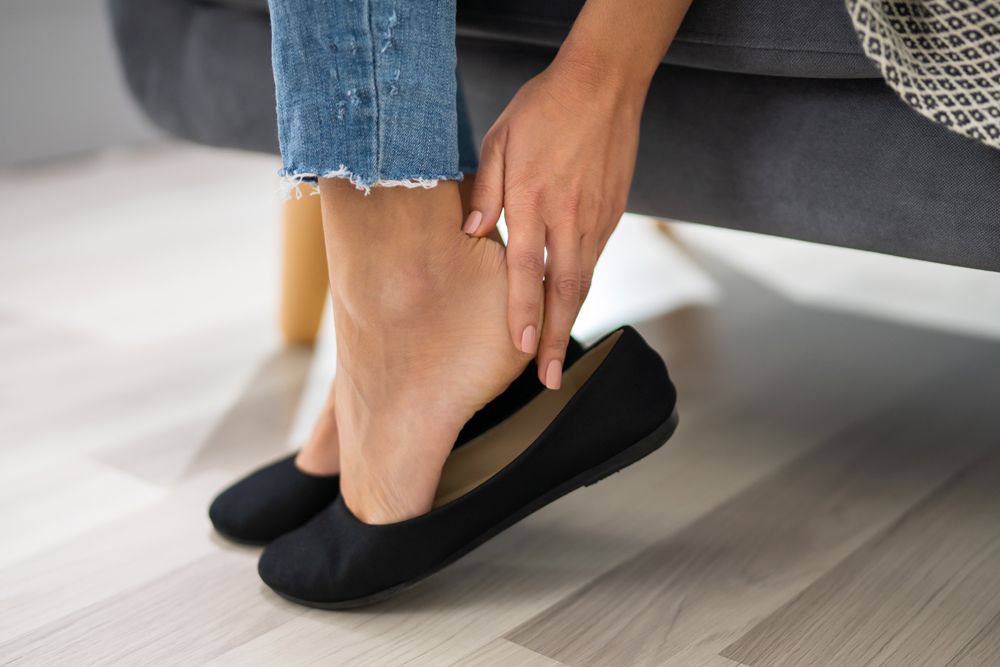
Is All Heel Pain the Same?
Heel pain is the single most common problem affecting the foot and ankle, however not all heel pain is the same. Several different conditions can be responsible for heel pain. Correctly identifying the cause of the pain is important to treating the problem and improving symptoms. Ignoring the pain can lead to chronic heel pain, which can be more challenging to treat.
Plantar Fasciitis
Plantar fasciitis is the most common cause of heel pain. The plantar fascia is a strong fibrous band of tissue that runs from the bottom of the heel to the toes. Plantar fasciitis is an inflammation of the plantar fascia and can be associated with a bone spur on the bottom of the heel. Symptoms typically include pain on the bottom of the heel that is worse when getting up from a seated position. Learn more.
Insertional Achilles Tendinitis
The Achilles tendon is the largest tendon in the body and connects the calf muscles to the heel bone. Insertional Achilles tendinitis is an inflammation of the insertion of the Achilles tendon into the back of the heel. Over time, a bone spur may develop where the Achilles tendon inserts, causing a painful bump on the back of the heel. Learn more.
Haglund's Deformity
Similar to insertional Achilles tendinitis, a Haglund's deformity causes pain on the back of the heel. This condition involves a bony enlargement on the heel bone that irritates the Achilles attachment site when wearing shoes. This can lead to bursitis, which is a painful inflammation of a fluid-filled sac between the Achilles tendon and the heel bone. Learn more.
Tarsal Tunnel Syndrome
Tarsal tunnel syndrome is similar to carpal tunnel syndrome of the wrist. In tarsal tunnel syndrome, the tibial nerve is compressed as it runs on the inside of the ankle and into the foot. Symptoms can include pain, numbness, tingling, and burning on the inside of the ankle, heel, and bottom of the foot. Learn more.
In some cases, heel pain is caused by other conditions such as a stress fracture, bone tumor, cyst, arthritis, or peripheral neuropathy. If you are experiencing new or ongoing heel pain, schedule an appointment with our foot and ankle specialist.

Related Articles

Foot and Ankle
Avoiding Ankle Injuries in the Snow and Ice
Here in Wisconsin, we are beginning to see our beautiful fall weather turn to snow and ice. Ankle...

Foot and Ankle
Common Pediatric Foot Concerns
While many pediatric foot concerns do not cause pain or require treatment, some conditions can cause...

Foot and Ankle
Why Your Ankle Sprain Isn’t Getting Better
Ankle sprains are remarkably common in the United States, with an estimated 27,000 occurring each...

Foot and Ankle
Six Causes of Big Toe Pain
Bunions Also known as hallux valgus, this condition results from the shifting of the bones within...
